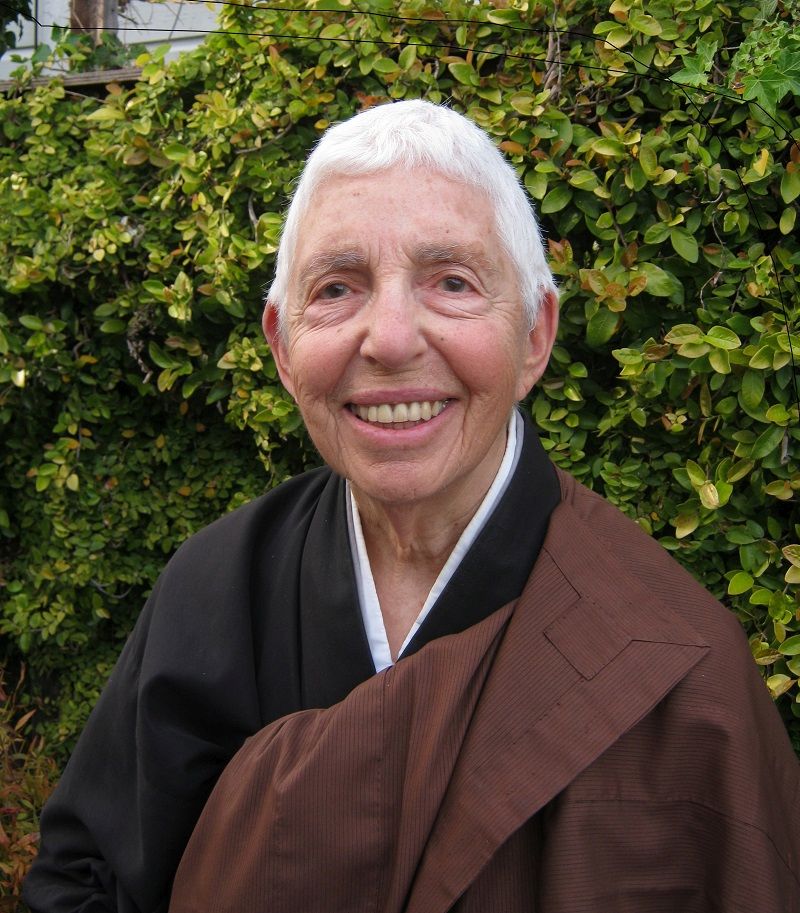Friday, 19 November 2021
FULL MOON – Habits of Clinging
Thursday, 21 October 2021
FULL MOON – Criticising
Wednesday, 20 October 2021
A Poem
One of our Sangha members sent me this piece the other day and I thought it's a good one to share....................... In Zen practice,” writes the Zen teacher Sobun Katherine Thanas, “we give attention to the details of our lives.” By paying close, sustained attention to the most ordinary details in our daily round, we train ourselves to abide in the present moment. Rather than sacrifice our present experience to a past that is already gone, a future that has not yet come, or abstract thoughts that may or may not reflect reality, we attend to the details of the matter at hand: the level of green tea in our measuring spoon, the temperature and volume of water to be added, the specific brewing time for that particular tea. By so doing, we fully engage in relative, historical time, even as we touch the timeless, absolute dimension of our experience. No one understands this paradox more fully or articulates it with greater skill than the Midwestern poet Ted Kooser (b. 1939), who won the Pulitzer Prize for Poetry for his book Delights & Shadows in 2005 and served as US Poet Laureate from 2004-2006. Kooser is not a Zen practitioner, so far as I know, (he's a Unitarian Universalist) but by attending to the details of quotidian life, no matter how mundane, he returns the reader, time and again, to the immediacy of the present moment. And in their acute awareness of impermanence and interdependence, as revealed by such common or discarded objects as curtain rods, enameled pans, and Depression glass, his poems often embody the essence, if not the customary forms and rituals, of Zen practice. A vivid example may be seen in the title poem of Kooser’s collection Splitting an Order (2014). In this gentle poem, set in a diner, the narrator observes an old man cutting his cold sandwich into two equal parts. It pleases the narrator to watch him keeping his shaky hands steady by placing his forearms firm on the edge of the table and using both hands, the left to hold the sandwich in place, and the right to cut it surely, corner to corner, observing his progress through glasses that moments before he wiped with his napkin, and then to see him lift half onto the extra plate that he asked the server to bring, and then to wait, offering the plate to his wife while she slowly unrolls her napkin and places her spoon, her knife, and her fork in their proper places, then smooths the starched white napkin over her knees and meets his eyes and holds out both old hands to him. A more ordinary situation it would be difficult to imagine: an elderly married couple having lunch in a diner. Yet Kooser endows this everyday situation with the glow of heightened attention, both on the part of the husband and wife and on that of the observant narrator. The couple are splitting a plain roast-beef sandwich, perhaps to economize or because neither needs to eat a whole one. To accomplish this division, the husband must steady his shaky hands, a challenge he readily overcomes. By dividing the sandwich “surely” and diagonally, he ensures that the resulting portions will be exactly equal. Meanwhile, his wife carefully unrolls the napkin enclosing her knife, fork, and spoon. These, too, become objects of meticulous attention. Even as the husband and wife are taking their time and paying attention to the details of their humble repast, the narrator is doing the same. His unswerving observation, recorded in a single complex but graceful sentence, not only mirrors that of his subjects toward the actions they are performing. It also establishes a tone of caring, even for common, unexceptional things, and implicitly bestows moral and aesthetic value on a scene that might otherwise have been dismissed as banal. The true significance of the scene becomes apparent in the poem’s closing lines, where the husband’s offering his wife her half of their sandwich completes his act of fairness, solicitude, and kindness. She in turn exhibits an attitude of openness and gratitude. Shizen ichimi, an old Zen saying reminds us: “Poetry and Zen are one.” Although the former depends on fresh language, the latter on silent contemplation, both rely on wholehearted attention to concrete, particular detail. By stopping and looking deeply, both reveal the hidden dimension of human experience, the currents of interdependence and impermanence that underlie the most commonplace of human interactions. And, though they do so in very different ways, both, in the words of the poet Patrick Kavanagh, “snatch out of time the passionate transitory.” _____________ Sobun Katherine Thanas, The Truth of This Life: Essays on Learning to Love This World |
Tuesday, 17 August 2021
Wearing a Mask
Friday, 6 August 2021
We're Back!
West Wight Sangha reopened it's Shrine Room doors for it's first Post Lockdown meeting yesterday!
Join us every Thursday evening from 7:30 until 9:30
Sunday, 25 July 2021
FULL MOON – Shaping Life
Friday, 25 June 2021
Dhammapada Reflections FULL MOON – The Way of Wisdom
Sunday, 20 June 2021
Daily Mindfulness Exercise
For some time now I have been emailing out regular weekly mindfulness/meditation exercises to the members of the West Wight Sangha and to other friends and associates. At the New Year I introduced an additional Daily Mindfulness Exercise and post a reminder of this with each weeks email.
Quite simply, the exercise is to pick up and dispose of one piece of litter every day.
Obviously this is an environmentally useful activity in its own right and has a number of merits, but how can it be considered a mindfulness exercise?
It is so easy to rush through life without stopping to notice much.
Paying more attention to the present moment – to our own thoughts and feelings, and to the world around us – can improve our mental wellbeing.
This awareness is what we call "mindfulness". Mindfulness can help us enjoy life more and understand ourselves better. We can take steps to develop it in our own lives but there is one vital element that underpins this kind of mental activity and that is the need to REMEMBER to be mindful.
This is where the use of regular exercises comes in, essentially we commit to carrying out a task, we have a job to do. For the purpose of developing our ability to be mindful these tasks should not be overly complicated and there should be a clear trigger, a predefined set of circumstances, to initiate our focused awareness of the task.
One of our weekly exercises, and one of my favourites, is to notice the colour blue. Sounds simple but you quickly become aware of how rare, especially in the countryside, this colour is. There are two elements here, you can be mindfully looking for the colour blue or your mindfulness is triggered by seeing the colour blue. Just swap litter for blue objects and you can see the benefit of the litter pick exercise.
It’s also a good idea to tell other people what you are doing, people do look and wonder..... so tell them. Here on the Isle of Wight we have a population of 139,000. Even halving this to allow for the too youngs, too olds, too infirmeds and, sadly, the don’t cares still leaves the potential for the best part of 70,000 pieces of litter to be removed from our beautiful island EVERY DAY and every day works out to a staggering TWO AND A HALF MILLION PIECES OF LITTER REMOVED EVERY YEAR. So the more people you can get interested the better.
You can also beef up the remembering element of the exercise by keeping a tally of days missed, it will happen, and making a personal promise to pick up the missed number of pieces of litter the next opportunity you have.
The environmental point of this task is to get us working at creating a cosy home for all of us in this world. After all, the world is our home. Trying to define home as only the space we live in every night only serves to segregate and not unite us. Recognise that our home extends beyond just those physical walls and every ground we walk on, every neighbourhood we walk in, every district we step into, etc. should be considered our home, too.
The problem with litter is that the more there is, the more it generates. If people see litter all over the place, they see no reason why they shouldn't add to it. Why should they bother to look for a bin when nobody else does? What difference to the general scene would one more sandwich wrapper make?
But think what difference one less wrapper makes and then another one less and another and another........................









